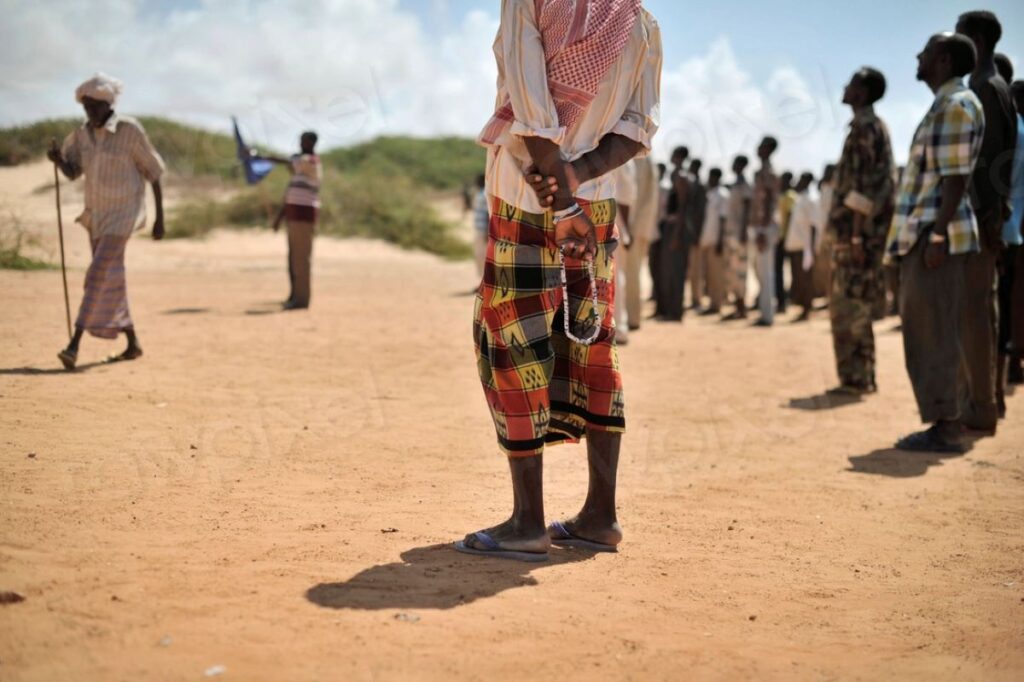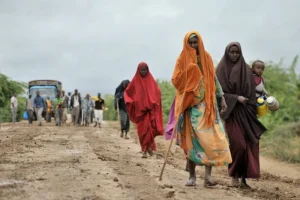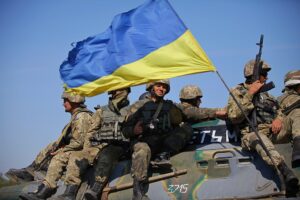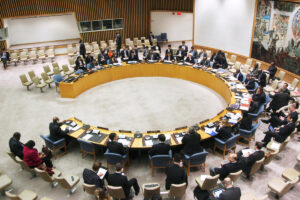Issue Briefs
The APSG fostered new research on atrocity prevention in 2023 with the publication of issue briefs examining key and emerging atrocity prevention challenges:
- Social Media Mis-/Disinformation and the Risk of Atrocities in the United States (by Roudabeh Kishi) Explores opportunities to enhance atrocity prevention and early warning through improved tracking and understanding of online false narratives.
- Whither Atrocity Prevention at the UN? Look Beyond R2P and the Security Council (by Federica D’Alessandra and Gwendolyn Whidden) Considers how UN bodies outside the Security Council have continued to make substantive—if overlooked—contributions to atrocity prevention objectives.
Meetings and Featured Speakers
Below is a full list of the APSG’s meetings and featured speakers in 2023. APSG meetings are non-attributable in nature. However, some speakers have agreed to have their presentations recorded and made available. Videos of those presentations—where available—have been linked below.
- The Continuing Conflict Over Nagorno-Karabakh (January 19, 2023) Examining how the Nagorno-Karabakh conflict has evolved, where things currently stand, and what may transpire in the months ahead.
- Carey Cavanaugh, University of Kentucky; International Alert
- Elisa von Joeden-Forgey, Keene State College
- Siranush Sahakyan, Human Rights Professional; Former Aide to the President of Armenia; Former Ad Hoc Judge of the European Court of Human Rights
- Arman Tatoyan, Former Human Rights Defender of Armenia
- Hypocrisy and Human Rights (February 23, 2023) Discussing Kate Cronin-Furman’s book Hypocrisy and Human Rights: Resisting Accountability for Mass Atrocities, which investigates the diverse ways in which repressive states respond to calls for justice.
- Kate Cronin-Furman, University College London
- Radio as a Preventative Tool to Hate Speech and Violence (March 16, 2023) Discussing the efforts of Dutch NGO Radio La Benevolencija to empower groups and individuals in vulnerable societies to recognize and resist hate speech and violence.
- George Weiss, Radio La Benevolencija
- Cathy Buerger, Dangerous Speech Project
- Atrocity Prevention Indices and Data Tools (April 20, 2023) The latest in the APSG’s series of annual discussions of atrocity-related indices, data tools, and their applications.
- Ben Valentino, Dartmouth College
- Emily Sample, Fund for Peace
- Nate Haken, Fund for Peace
- The Situation in Haiti (May 18, 2023) Examining recent developments, reflecting on U.S. policy, and discussing the path forward for the country.
- Claire Seelke, Congressional Research Service
- Georges Fauriol, Center for Strategic and International Studies; Caribbean Policy Consortium; Think Tank Haiti Steering Group
- Sylvie Bédard, Global Affairs Canada
- Sant’Egidio: Tiny Conference Room, Big Impact (June 15, 2023) Discussing the origins, organization, and approach of the Community of Sant‘Egidio, a lay Catholic association dedicated to social service and deeply involved in peace negotiations and peacebuilding.
- Andrea Bartoli, Sant‘Egidio Foundation for Peace and Dialogue
- Kate Temoney, Montclair State University
- The State of Play in Zimbabwe (August 29, 2023) Discussing how Zimbabwe arrived at its current impasse, the political repression that preceded the August 2023 national elections, the current political and economic scene in Zimbabwe, and what likely lies ahead.
- Sara Rich Dorman, University of Edinburgh
- Idriss Nassah, Human Rights Watch
- Brian Raftopoulos, University of Cape Town
- Virtual Annual APSG Research Exchange (September 26, 2023) Examining trends and gaps in atrocity prevention research and discussing research projects currently underway in the atrocity prevention community.
- Clionadh Raleigh, Armed Conflict Location and Event Data Project; University of Sussex
- Jeffrey Sizemore, U.S. State Department
- Challenges to Pursuing a Policy of Prevention (October 17, 2023) Bringing together leading U.S government and civil society experts to discuss obstacles to U.S. atrocity prevention efforts and identify opportunities to overcome them.
- Dr. Ashleigh Landau, U.S. Holocaust Memorial Museum’s Simon-Skjodt Center for the Prevention of Genocide
- Dr. Paul Stares, Council on Foreign Relations; Center for Preventive Action
- Elizabeth (Liz) Hume, Alliance for Peacebuilding
- Leah Werchick, U.S. Agency for International Development
- Social Media Mis-/Disinformation and the Risk of Atrocities in the United States (November 15, 2023) Roudabeh Kishi of the Bridging Divides Initiative discusses opportunities to enhance atrocity prevention and early warning through improved tracking and understanding of online false narratives.
- Roudabeh Kishi, Bridging Divides Initiative
- Cathy Buerger, Dangerous Speech Project
- Rachel Brown, Over Zero
- Whither Atrocity Prevention at the UN? Look Beyond R2P and the Security Council (December 14, 2023) Federica D’Alessandra and Gwendolyn Whidden of Oxford’s Blavatnik School of Government’s Institute for Ethics, Law, and Armed Conflict examine the UN’s substantive — if overlooked — contributions to atrocity prevention objectives outside the Security Council.
- Federica D’Alessandra, University of Oxford’s Institute for Ethics, Law, and Armed Conflict (ELAC); Oxford Programme on International Peace and Security at the Blavatnik School of Government
- Gwendolyn Whidden, University of Oxford




